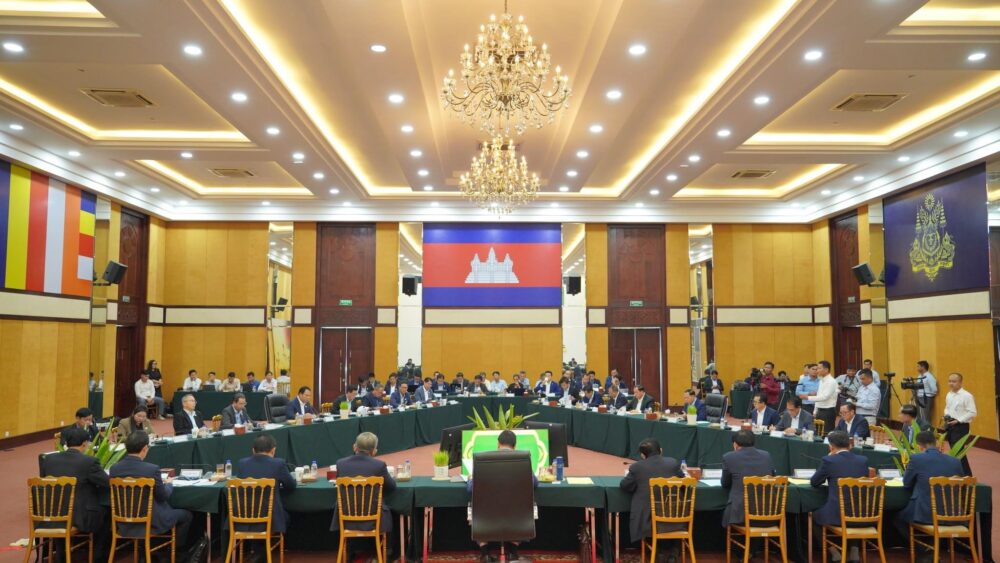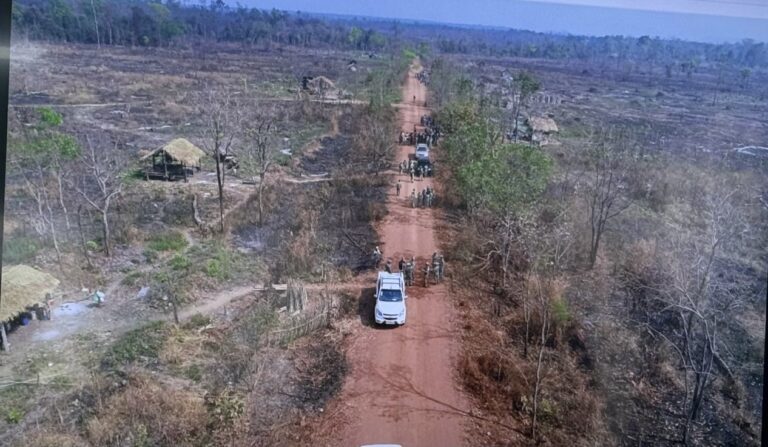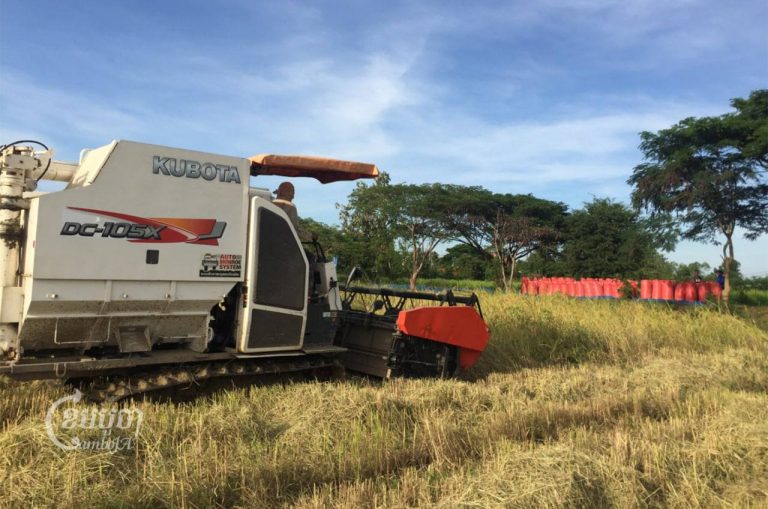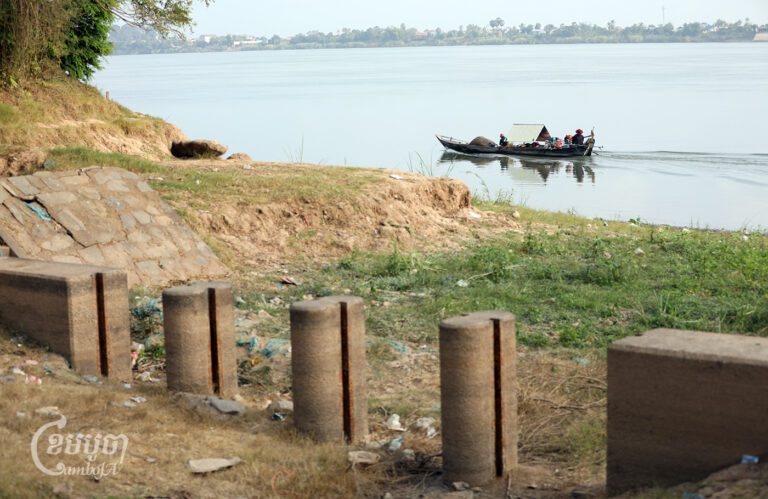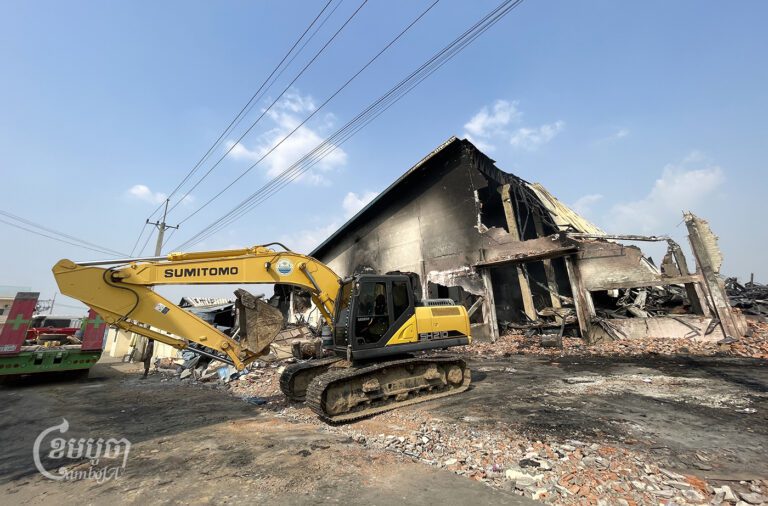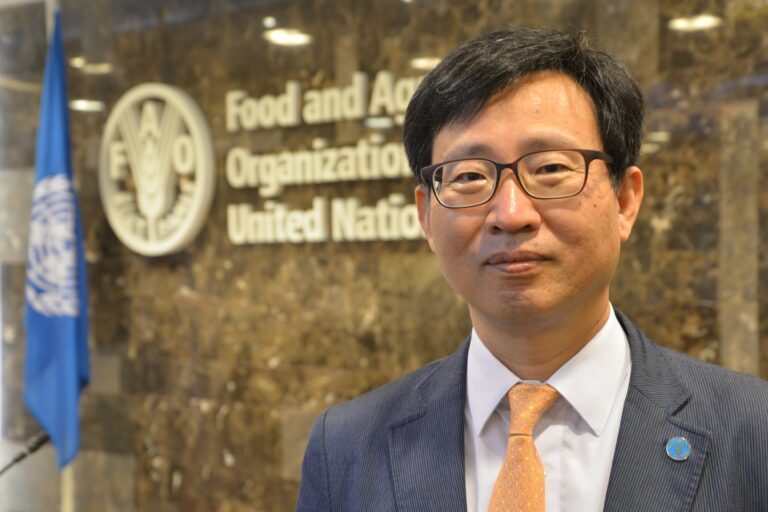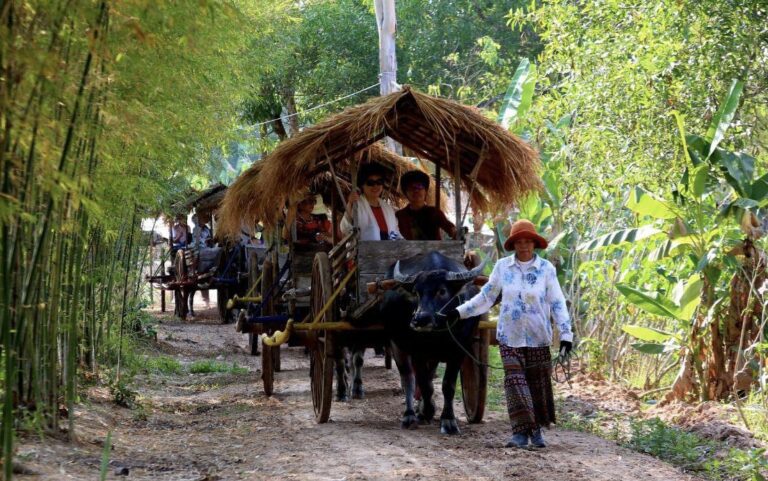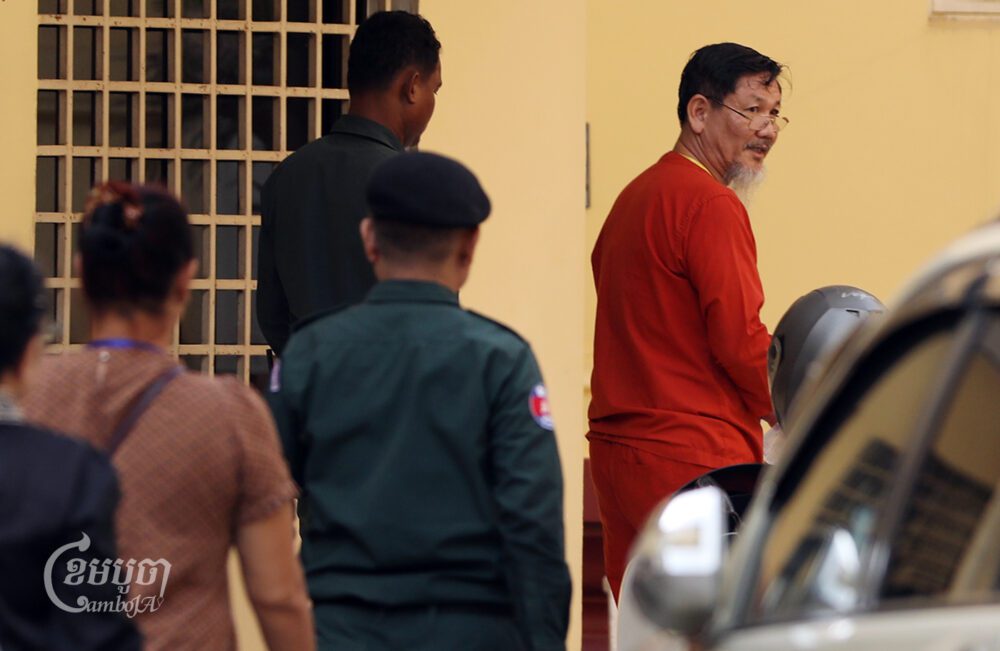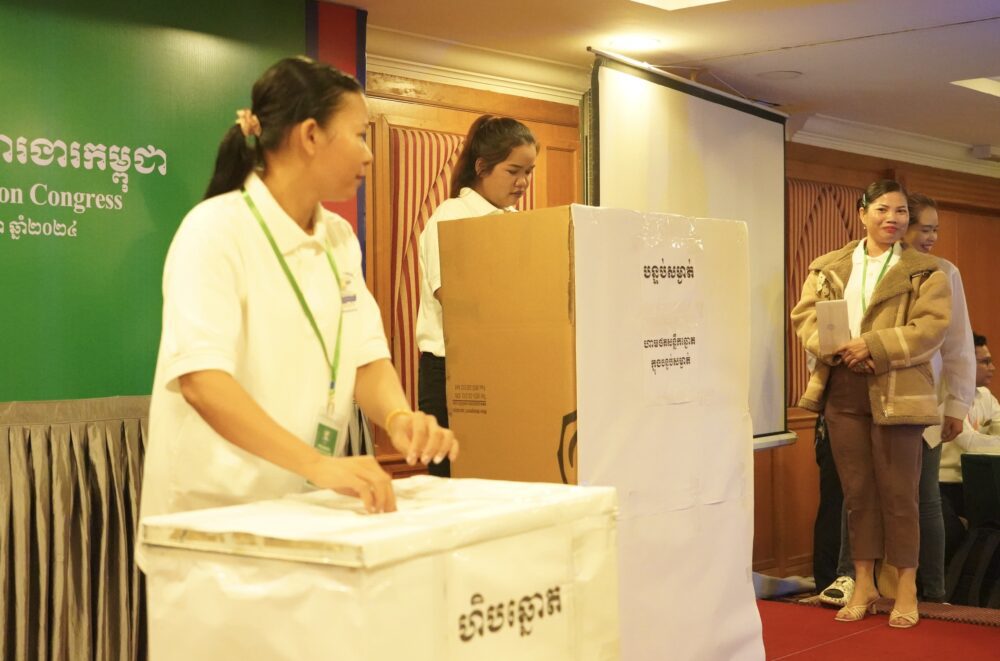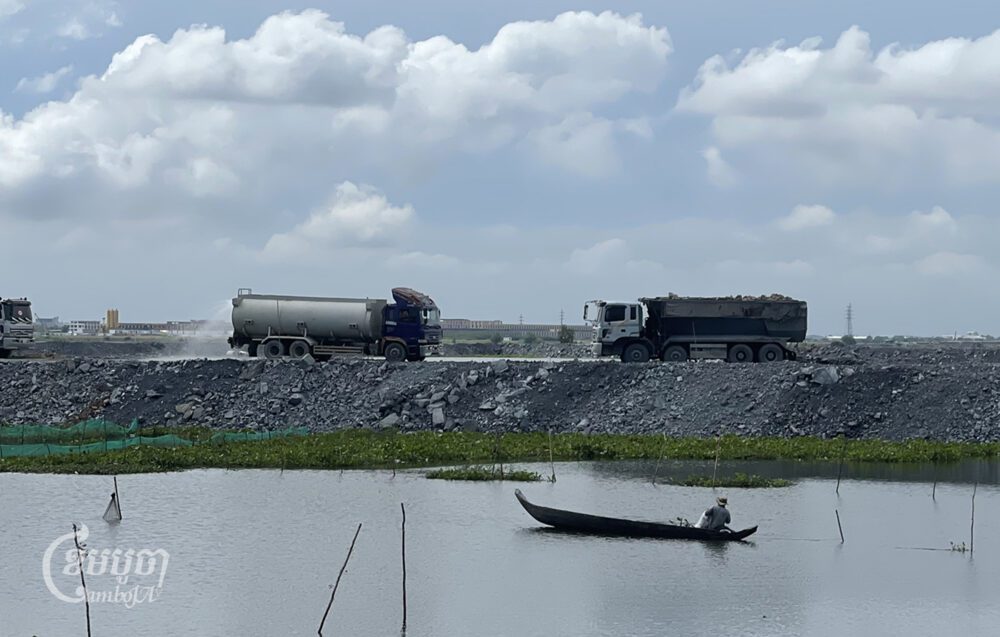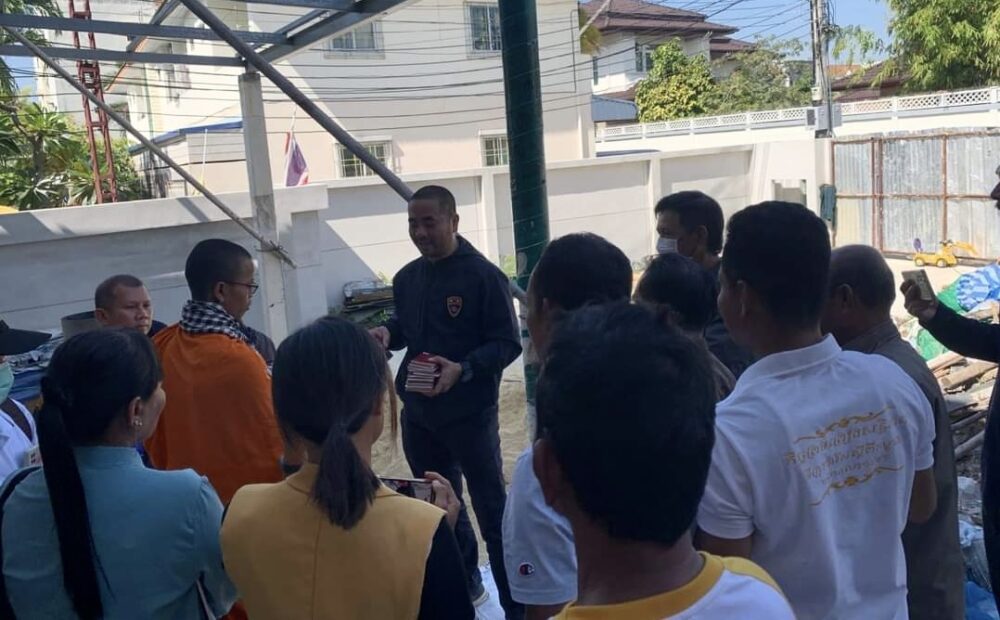A first-ever tripartite meeting among three ministries – Agriculture, Fisheries and Forestry, Rural Development, and Water Resources and Meteorology – was held on May 6 to discuss problems and solutions, amid a water crisis. However, farmers have asked the Ministry of Commerce (MoC) to also join the discussions to resolve market issues.
For starters, the three ministries will increase cooperation to help improve farmers’ livelihood and ensure higher benefits, agreeing on key points including setting goals, strategies, consultation, linking projects and establishing inter-ministerial working groups.
“The meeting is very important for the leaders as well as expert officers of the three ministries to understand the strategies and priorities of each ministry and gather resources and techniques to implement the work to achieve better results,” Dith Tina, Minister of Agriculture said in a statement.
Khim Finan, Agriculture Ministry spokesperson, told CamboJA that the collaboration reflected a synthesis of resources and matching priorities to form three angles of the agriculture sector under a more realistic “single-character system” to solve problems. It will help to remove obstacles at the local level faster.
The three ministries have other ongoing projects, such as the joint priority plan, which is a coordination among the Agriculture Ministry’s modern agricultural community policy program with the water farmers’ community (Water Resource and Meteorology Ministry) and model village program (Rural Development Ministry).
Although the ministries have been working together, the tripartite meeting will now establish more direct and frequent cooperation. “This cooperation is not new, only that the three ministries will increase cooperation, meet face-to-face and discuss more often,” Finan said.
Market prices continue to suffer
Oum Sophea, president of the Samaki Dambe farming community, said he has yet to learn about the cooperation between the three ministries to solve farmers’ problems.
He believed that more than 70% of farmers in his community know planting techniques to improve crop yield, however, water shortage and market remain problematic.
This year, mango prices are better, from 200 riel to 300 riel per kilogram, as opposed to 100 riel to 150 riel per kilogram last year. But, the price this year is still the lowest, Sophea said. “It’s still a problem for farmers. The acceptable price is between 800 riel and 1,000 riel per kilo.”
For dry rice, the lack of water, especially in his area, is affecting farmers. Even though they pump water from the river to irrigate the land, it is not adequate as there are only two pump machines from the river but about 60 farmers pumping water to their fields.
He added that even though it is good for farmers to form a community, they cannot solve the market problem and water shortage. But, he believed that if the ministries cooperated with the MoC, it would be better.
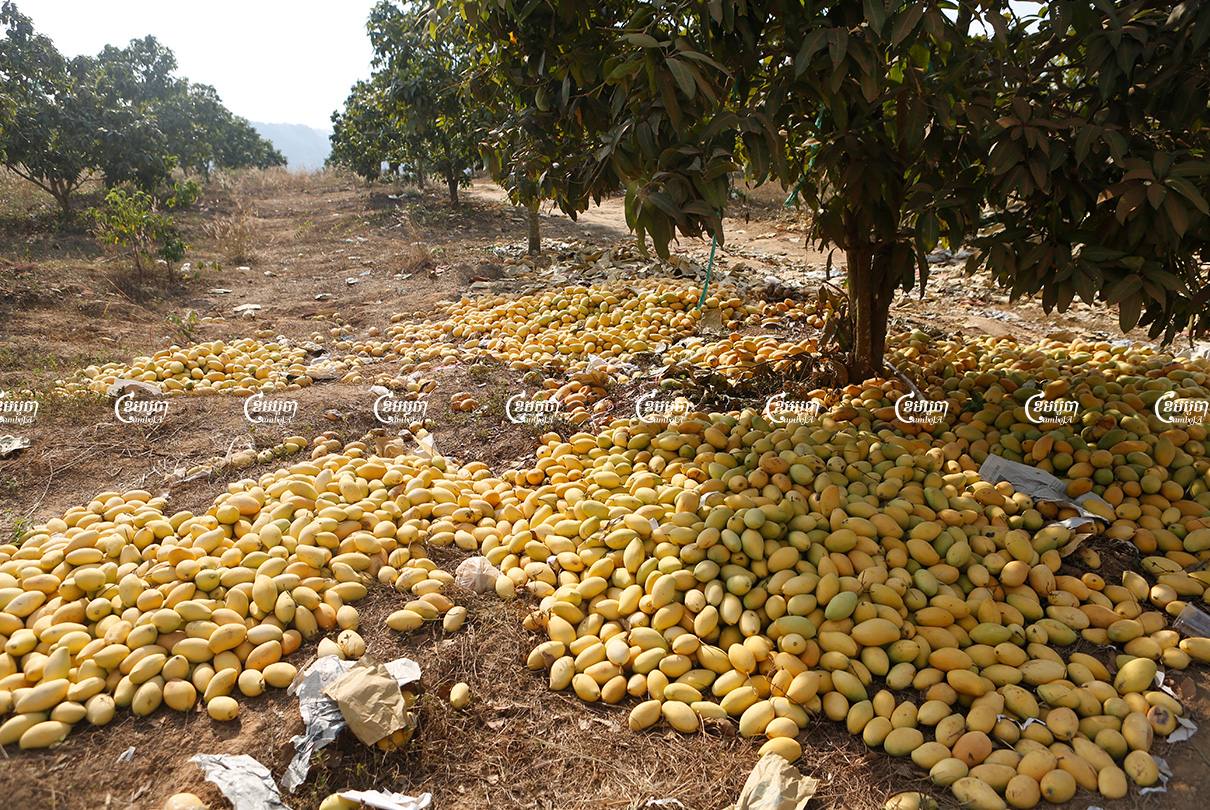
Currently, agriculture officers go to villages to teach farmers about the techniques to produce good agricultural harvests, but it does not translate to growth in income because market prices are not good.
“I ask the MoC to join the cooperation because they play an important role in the supply chain price of farmers’ products,” he said. “If they don’t actively find a market, then whatever we plant would have a cheap price.”
Finan, spokesperson of the Ministry of Agriculture, did not respond to questions about marketing solutions for farmers.
Examining the overall situation
Secretary of State of Commerce Ministry, Sok Sopheak told CamboJA News that the three ministries are working together at the production stage, where they need to provide water and technical support to farmers.
He said the problem of securing markets is not because his ministry did not join the meeting but because the countries that Cambodia exports agricultural products to have set standards, which hamper the exports of products like mango or cashew.
“But for the ministry, even though we did not sign any agreement or MoU, we have been importing to China and RCEP [Regional Comprehensive Economic Partnership] countries,” he said. “So, the problem is not related to finding a market, it is about the quality of agricultural products and market demand.”
If necessary, he suggested the establishment of an agriculture product seller community, like a collective, depending on the product, such as mango. The collective can bring together farmers’ produce to be sold to the broker.

Meanwhile, Chan Youttha, spokesperson of the Ministry of Water Resource and Meteorology told CamboJA News that the tripartite collaboration was to create new work.
He said initially, each ministry used to work independently. However, now the ministries have collaborated to examine the overall situation and identify areas where they can work together.
Youttha continued that the ministry would use technical resources and see political decisions made by the three ministers while raising funds together.
The ministries can choose to develop an area together and mobilize human resources. “If we develop rapidly, people’s lives will improve. We can implement policies and develop throughout the country,” he said.
When asked by CamboJA how the three ministries intend to address the irrigation system, he did not respond directly, but pointed the reporter to a statement by Thor Chetha, Minister of Water Resources and Meteorology, which said water supply for agriculture is a priority of the ministry.
“[W]e will work with the Ministry of Agriculture, Forestry and Fisheries to solve water problems for farmers through the development of irrigation systems in geographically scarce areas and flood areas.”
Rice fields dried up
Early this year, a lot of farmers faced water shortage for the dryland rice. At least 760,000 hectares of dryland rice were planted in several provinces, however, water shortage impacted irrigation in the fields.
Sem Chamnan, a dryland rice farmer in Dambe district, Tboung Khmum, said the hot weather and inadequate irrigation caused his rice fields to die.
“There is a severe shortage of water and the wells have dried up,” he said. “There is only irrigation water, but there are many users, so there is not enough supply.”
Ordinarily, if there is enough water for one hectare of rice field, farmers would get more than four tons of rice, but if there is not enough water, for instance, this year, they only get two tons.
“It seriously affects people’s livelihood because they have to buy agricultural fertilizers and hire people to plow the land. So, when agricultural yields are low, they become vulnerable to debt risks,” Chamnan said.
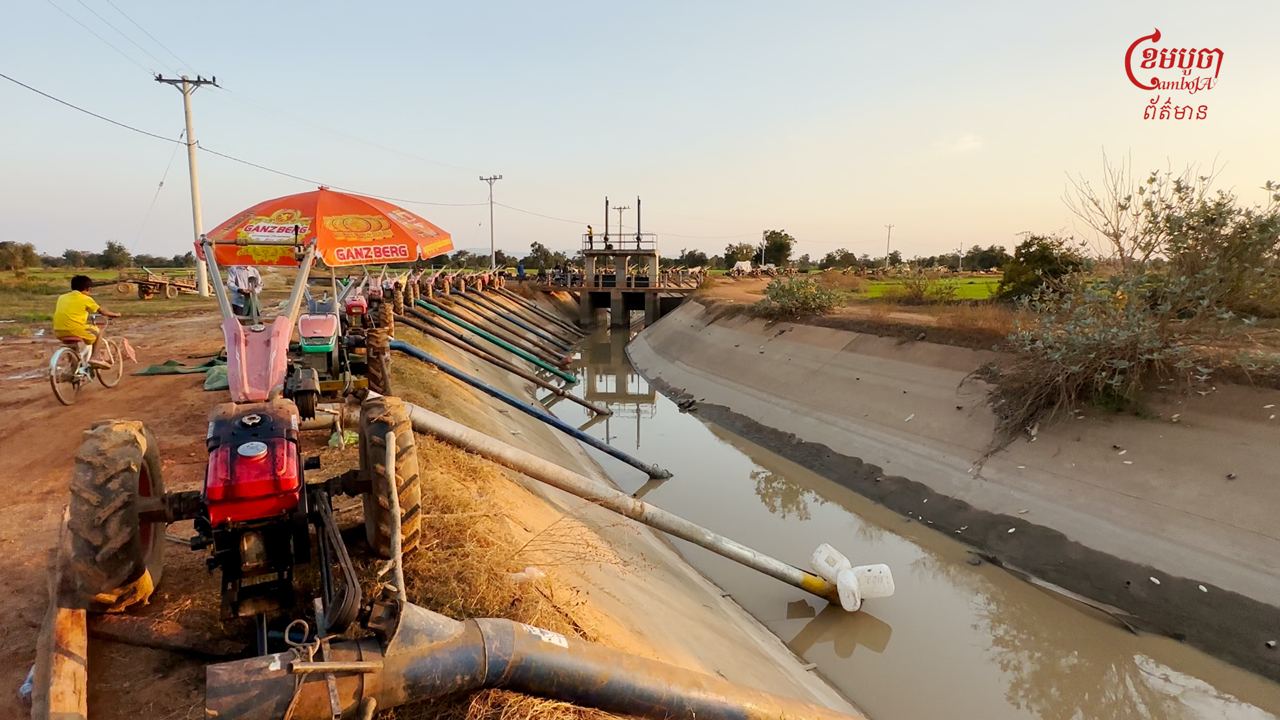
He continued that because there is no irrigation system, farmers in his community mostly dig wells and ponds for their dryland rice. However, if there is a good irrigation system, it would help people plant dryland rice but he has never seen any officers visiting the fields or checking with the farmer.
The farmer said he would be happy if the three ministries worked together to resolve the water issue. “If they can work together like they said, it’ll be good for the farmers.”
Support the local sector
Ministry of Rural Development undersecretary of state and spokesperson Pit Karuna told CamboJA News that the ministries discussed their potential roles to serve the rural communities and have set up inter-ministerial working groups that will meet every three months.
He said the ministries have linked policies relating to rural development, such as the Ministry of Rural Development’s model village project.
The model village project aims to boost people’s livelihoods by providing skills training in addition to farming, which will help create more jobs, so that people can increase their income.
It should be noted that to date, the ministry has organized 30 model villages in Takeo, Kampong Speu and Tbong Khmum with the assistance of South Korea. There are 10 villages in each of the provinces.
The ministry is evaluating the model village project in other provinces, with plans to develop model villages per year between 30 to 50 villages.
Hun Seang Hon, executive director of Cambodian Agricultural Community Coalition, opined that the collaboration also requires the participation of the MoC, the Ministry of Mines and Energy, the Ministry of Finance, and other relevant ministries.
He said farmers faced many problems, such as water and climate change and the market was still limited.
After of Covid-19, farmers were in dire straits, with a large number of them owing money which damaged their credit profile, he told CamboJA News, adding that crops were not marketed as the market remained limited.
“The stakeholders should support the agricultural sector. I don’t only mean the leaders, but also companies and people to support the local sector, so that producers [farmers] will have the strength to produce,” he said.


